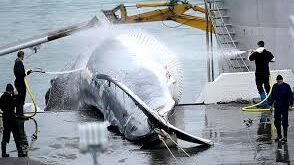By Owen Xu Li
Researchers recently examined DNA of elephant tusks in the cargo of a 487 year-old ship. They concluded that the analysis of 100 elephant tusks revealed the devastating impacts of centuries of ivory trade on the elephant population. Subsequently, their findings were published in the scientific journal Current Biology.
The tusks were unusually well-preserved thanks to the cold water off the Namibian Coast. These special conditions allowed the researchers to determine the type of diet the elephants had, while also revealing where they had lived and been hunted. Additionally, researchers found evidence that there were at least 17 herds of elephants among the 100 tusks. Unfortunately, however, only four of those 17 herds still exist today in Africa.
The wreck where the elephant tusks were found belongs to a Portuguese trading vessel known as the Bom Jesus, which disappeared on its way to India in 1533, making it the oldest shipwreck in southern Africa. It was found much later, in 2008, near a coastal diamond mine.
The ivory was just a fraction of the cargo the ship contained: copper ingots, gold and silver coins accompanied the tusks. Personal effects and navigation equipment were also found among the items in the ship.
Ashley Coutu, archaeologist from the University of Oxford, says the ivory is an incredible find and that the tusks have been extremely well-preserved.
The researchers hope their findings will have an impact on modern anti-poaching efforts since their methods and results can help track where elephants were killed, based on DNA analysis, and then create targeted conservation efforts in those areas.
 Tempus Magazine By Students, For Students
Tempus Magazine By Students, For Students 



